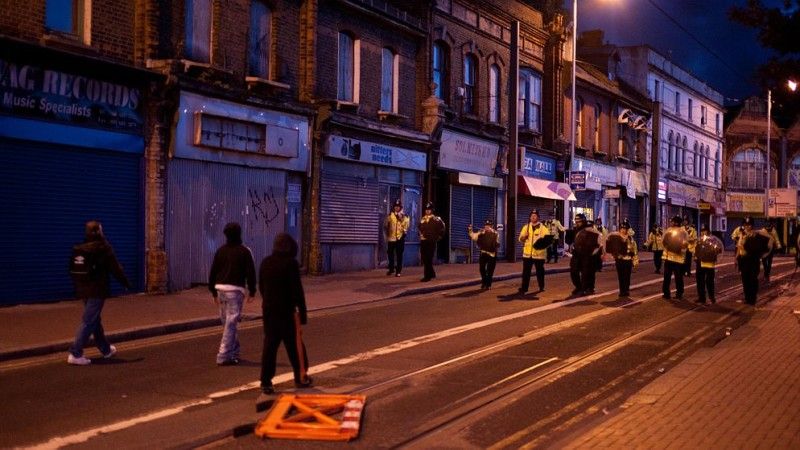- WIADOMOŚCI
- WYWIADY
Polarization degrades nation’s resilience to information operations
“Restoring public media as a sort of common platform, so we have a common understanding of what happened yesterday and what is likely happened tomorrow is crucial in fighting disinformation” claims Edward Lucas, Senior Vice President at the Center for European Policy Analysis (CEPA).

The House of Commons Intelligence and Security Committee released long-awaited report into Russian meddling in the U.K. democratic process. What do you think about this report? What are the main weaknesses of this report?
It is very good that this report has been published at last. I have been arguing for more than 20 years about Russian interference in the British policy and I think it is really good serious review of Russian activity on operation side and policy side. The report covers most of the most important issues regarding Russian activity. Maybe, the report lacks the lessons learned from other countries vulnerable to Russian cover ops like the Baltic States, Poland, Czech Republic, Sweden. All these countries have things, we can learn. However, maybe more details are included in classified version of the report. We need to ask our questions and make recommendations for the government. Big question remains what the British government did to stop Russian interference and what is planning to do after the report publication.
“The U.K. government have actively avoided looking for evidence that Russia interfered” these are the words of Scottish National Party MP Stewart Hosie. Why?
It is one of the big findings of this report. It is not a real shock that Russia intervened in Great Britain political life but why we do nothing about it. The government should ask the security intelligence services to investigate and to assess the scope and size of Russian intervention. This government did not do that, likewise the previous governments. It is a scandal and I am very angry about this both as a citizen and taxpayer. I am also concerned because the government does not seek to be willing to learn this lesson. They claim that everything is fine but nothing is fine.
Why does not British government react on Russian interference. In the Cold War, Great Britain was a perfect shelter for Russians who left because they wanted to avoid KGB and other Russian secret services revenge. What has happened that this situation changed?
There were serious mistakes. First mistake was to think that now Russia is a democratic, capitalist and friendly country and the threat has changed, and the Cold War is over. It was a big mistake. Then, there are opportunities that globalization has created. Russian citizens and Russian money have poured into the United Kingdom, especially London. It was a big opportunity that Russia presented for trade and investment and British government pursue prosperity rather worrying about security. Inside secret services it was also a very narrow focus on making sure that Russia did not get spies into the heart of our system. They were concerned about old-fashioned penetration style agent infiltrating secret weapon production factory and stealing military secret. But they failed to appreciate the Russian influence operations. The reason was that lot of people who speak Russian retired or moved out of services so our capabilities deteriorated very seriously and we might try to rebuild them but we do not have a lot of people who speak Russian or/and understand the history of the Cold War. It will take a long time to rebuild these capabilities when you once lost them. It was also a political reluctance on government level to ask hard questions because they were worried what the answers maybe.
The Report of British Parliament was about Russia, but it is not the only country, which conducts information-psychological operations aimed at Great Britain. Is it necessary to prepare a similar report on the activity of other countries?
The House of Commons Intelligence and Security Committee starts working on China report and I very much hope that it will answer even more difficult questions than the report on Russia. I could perhaps also indicate Saudi influence to some extent. Obviously, Saudi Arabia has invested more in increasing own influence in the United States than here. But we need to remember that Saudis have a huge amount of money on their disposal and could conduct such operations in many countries. Ultimately, I will point out Russia and China are the main threats, and perhaps Iran and Saudi Arabia come afterwards.
Russians are actively engaged in disinformation against the UK even now. Could you tell me the main narratives used by Russian side? How should we response to it and what the UK is doing in this area?
The Britain is the major target of information operations. I am not sure what the main narratives are. However, we observe some activity e.g. during Scottish referendum, claiming that it was rigged and these fake news influence on public confidence in Scotland and it was trace back to Russian information operation. It is a clear example, not a huge one. RT and Sputnik are not widely read here. We have a very strong information system and the low-information consumers are the most vulnerable group for the disinformation attacks and countries with the weak information systems. It is not Britain. So I don’t see a major successful disinformation campaign here, which does not mean we should investigate more and maybe find out that Russians are behind the anti-vaccination propaganda that goes around or COVID-19 related scary stories or the protests against 5G. We should investigate properly and maybe we find out. If we did not look, we do not know.
So it looks like that Great Britain remains pretty resilient to the disinformation attacks. What can Poland learn from British experience to better counter hostile information operations?
This is an excellent question. Information operations are part of wider operations. They are not on its own. I think that the great advantage the Kremlin has it is a political polarization we have seen in the cases of Brexit, Trump or polarization between political parties. When you have polarization then all sorts of trust, cohesion and resilience start breaking down because people stop thinking that their enemy is another country but the biggest enemy are the people in my country, who run the other side. So, my strong recommendation to Poles on both sides of political division will be to try finding ways of reducing polarization. I think particularly important is to restore public media as a sort of common platform, so we have a common understanding of what happened yesterday and what is likely to happen tomorrow. I think it will be also very important to recognize this deepening polarization as a threat to national security.
























Serwis CyberDefence24.pl otrzymał tytuł #DigitalEUAmbassador (Ambasadora polityki cyfrowej UE). Jeśli są sprawy, które Was nurtują; pytania, na które nie znacie odpowiedzi; tematy, o których trzeba napisać – zapraszamy do kontaktu. Piszcie do nas na: [email protected].
Cyfrowy Senior. Jak walczy się z oszustami?